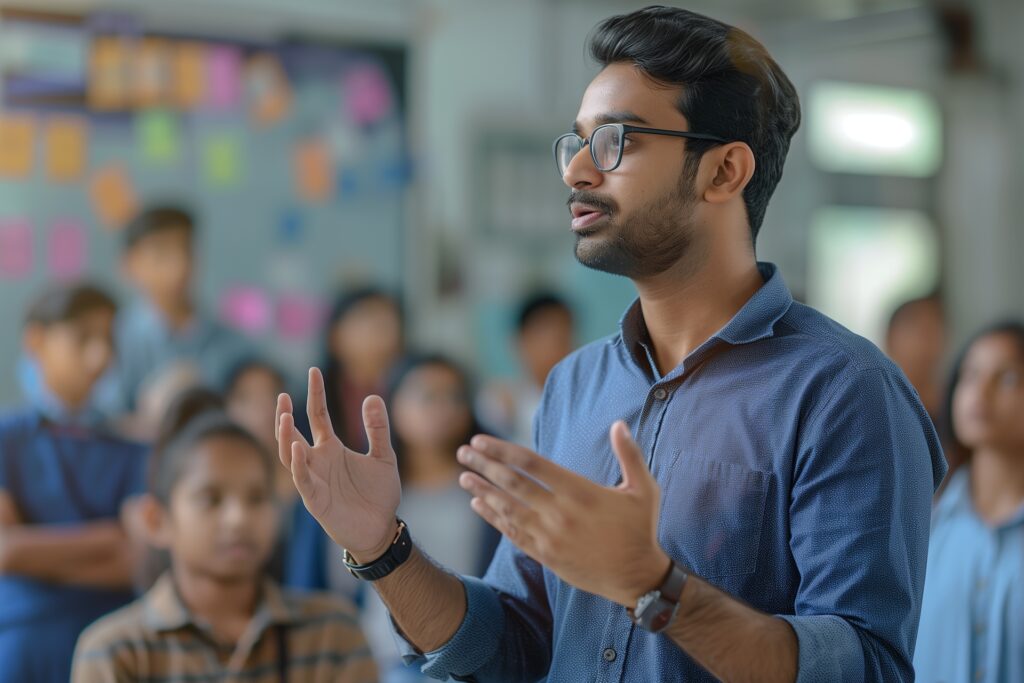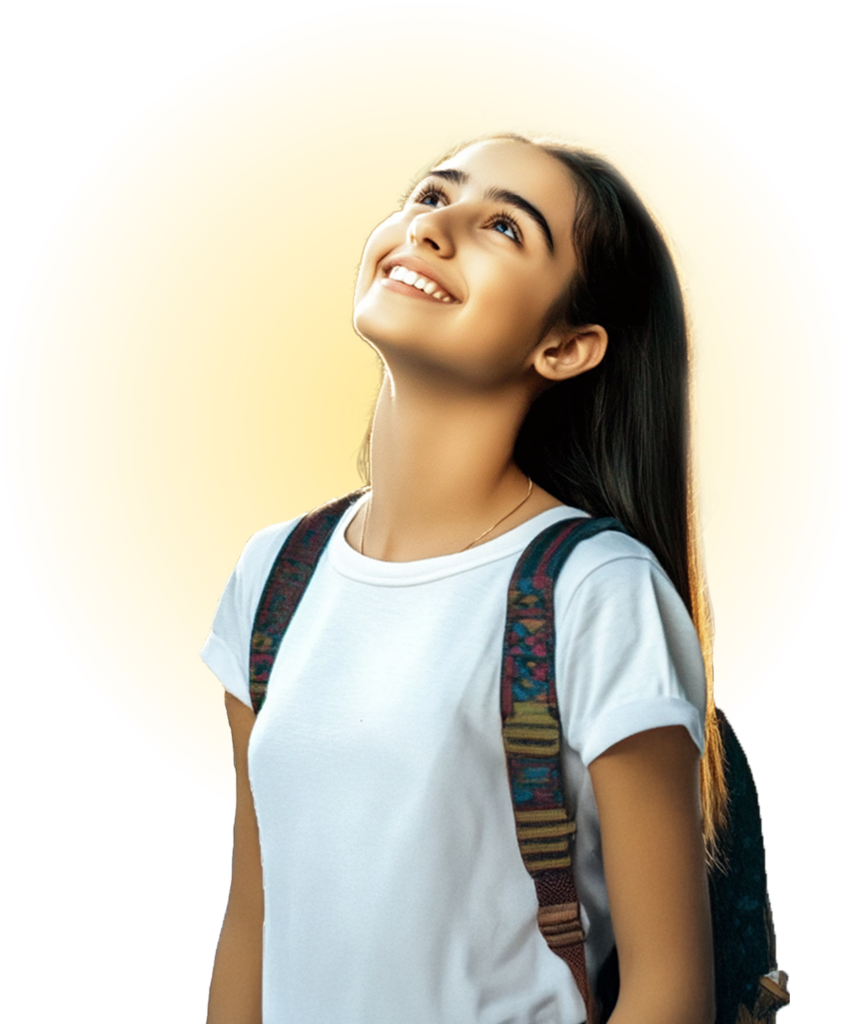When you hear the word leader, what image comes to your mind? Do you picture world leaders addressing nations, CEOs leading boardrooms, or inspirational figures commanding large audiences? Rarely do we imagine a 12-year-old making decisions in a team challenge, or a teenager guiding peers through a problem-solving task. And yet isn’t that where leadership truly begins?
Leadership doesn’t suddenly appear at 25 during a corporate review or at 30 while managing a team. It can start much earlier if young minds are given room to think independently, work with others, make mistakes, and try again with better judgment.
But here’s the real challenge: most students are rarely put in situations where they can experience leadership. They learn definitions and hear about teamwork, but don’t navigate the dynamics of leading one. They are told to be confident, but are not given experiences that help them feel confident.
If leadership is best learned through experience, then it’s worth asking how can young people begin that journey early? How can structured programs help them discover their voice, build confidence, and learn to lead with empathy and purpose?
Let’s look at how leadership training and experiential programs can shape students into future-ready leaders.
What is a leadership program?
A leadership program is an experiential learning space where students build leadership skills through hands-on challenges, teamwork, and guided reflection. Instead of focusing on theory, it helps them practice leadership in real time.
How is a leadership program for kids different from a traditional leadership workshop for adults?
Most leadership workshops for adults rely on lectures, speeches, or motivational talks. A leadership program for kids functions more like an active learning environment where students learn by doing through simulations, roleplays, team decisions, and creative problem-solving tasks.
Why do students need a leadership program at a young age?
When leadership skills like initiative, communication, and problem-solving are practiced early, they become part of a student’s natural response to challenges. It builds confidence before fear of judgment sets in.
What happens inside a leadership program session?
Students participate in structured group challenges, strategy simulations, and reflection circles. Each activity is designed to surface leadership behaviors like planning, listening, adapting, and guiding others.
Can leadership be learned through activities and games?
Absolutely. For instance, games and activities like the Lost Dutchman’s Gold Mine helps young students understand teamwork, planning, and resource management through a fast-paced adventure. Boxed In challenges creative problem-solving under constraints, while The Colourful Necklace teaches collaboration and coordination in dynamic team settings. Other activities like Taller Stack, Water Tower, and Spinning Your Web encourage communication, trust, and innovative thinking.
What skills do students develop in a leadership program?
Through repeated experiences, they develop:
- Confidence from leading teams and taking responsibility
- Communication skills through discussion and presentation
- Decision-making ability by handling real-time challenges
- Empathy and emotional awareness from working with diverse peers
- Creative thinking by solving open-ended problems.
According to the World Economic Forum’s Future or Jobs Report 2025, these skills are increasing in demand and a must-have for making today’s kids future-ready.
Why is reflection an important part of leadership development?
Activity combined with reflection creates opportunities of growth. When students pause after an activity to analyze what worked, what failed, and how they felt during decision-making, they begin to understand their leadership patterns and areas for improvement.
Are leadership programs useful for students who are introverted or shy?
Leadership is not always loud or dominant. In a program setting, even quiet students are given roles where thoughtful observation, empathy, and calm decision-making are valued, helping them recognize their own leadership style.
What makes a good leadership program facilitator?
A strong facilitator creates experiences by observing, nudging insights, challenging thoughts, and helping students connect actions to deeper and lasting leadership lessons.
What outcomes can parents expect after a leadership program experience?
Parents often notice increased confidence, clarity in communication, better teamwork, and a more responsible approach to decision-making in their children after such immersive experiences.
Does India have any leadership training programs for kids?
Yes, it does. HOAG has launched India’s first Leadership Lab for kids aged 11–17, designed to help young minds discover, practice, and grow their leadership potential. The program will begin with a 2-day immersive weekend experience across major Indian cities, starting with Pune in November 2025.
What is the credibility of HOAG’s Leadership Lab?
This Leadership Lab is built with insights and experiences from global leadership coaches and industry leaders across diverse fields who serve as its facilitators and advisors. Every session is designed to give students hands-on exposure to real-world leadership challenges through guided reflection and experiential learning.
In addition to that, the need for a Leadership Lab was discovered after two successful Summer School sessions hosted by HOAG at iHUB DivyaSampark, IIT Roorkee, in Summer 2025.
Now, HOAG aims to bring these transformative experiences closer to students across India, ensuring more kids can access this kind of practical, future-ready leadership learning right in their own cities.
In a world where leadership is often learned too late, programs like the HOAG Leadership Lab bridge the gap early. The journey of building the leadership mindset and skills begins not in a boardroom, but in a weekend of learning, reflection, and growth, where every student gets the chance to see themselves as a leader in the making.
FAQs
Who can participate in the program?
Students between the ages of 11 and 17 who are curious, motivated, and open to learning through experience can participate. No prior leadership experience is required.
Is there a certificate given at the end of the program?
Yes. Participants receive a Certificate of Participation recognizing their completion of the 2-day leadership experience.
How can parents register their child for the Leadership Lab?
Registration details and upcoming city schedules will be announced on HOAG’s official website and social media pages. Parents can sign up to receive updates or pre-register for their preferred city.




